- Home
- Health Condition
Medicine For Hypothyroidism
Medicine For Hypothyroidism
- Total Items (133)
 RX
RXThyronorm 25 mcg Tablet 120's
₹177.80
MRP ₹197.50
10% off
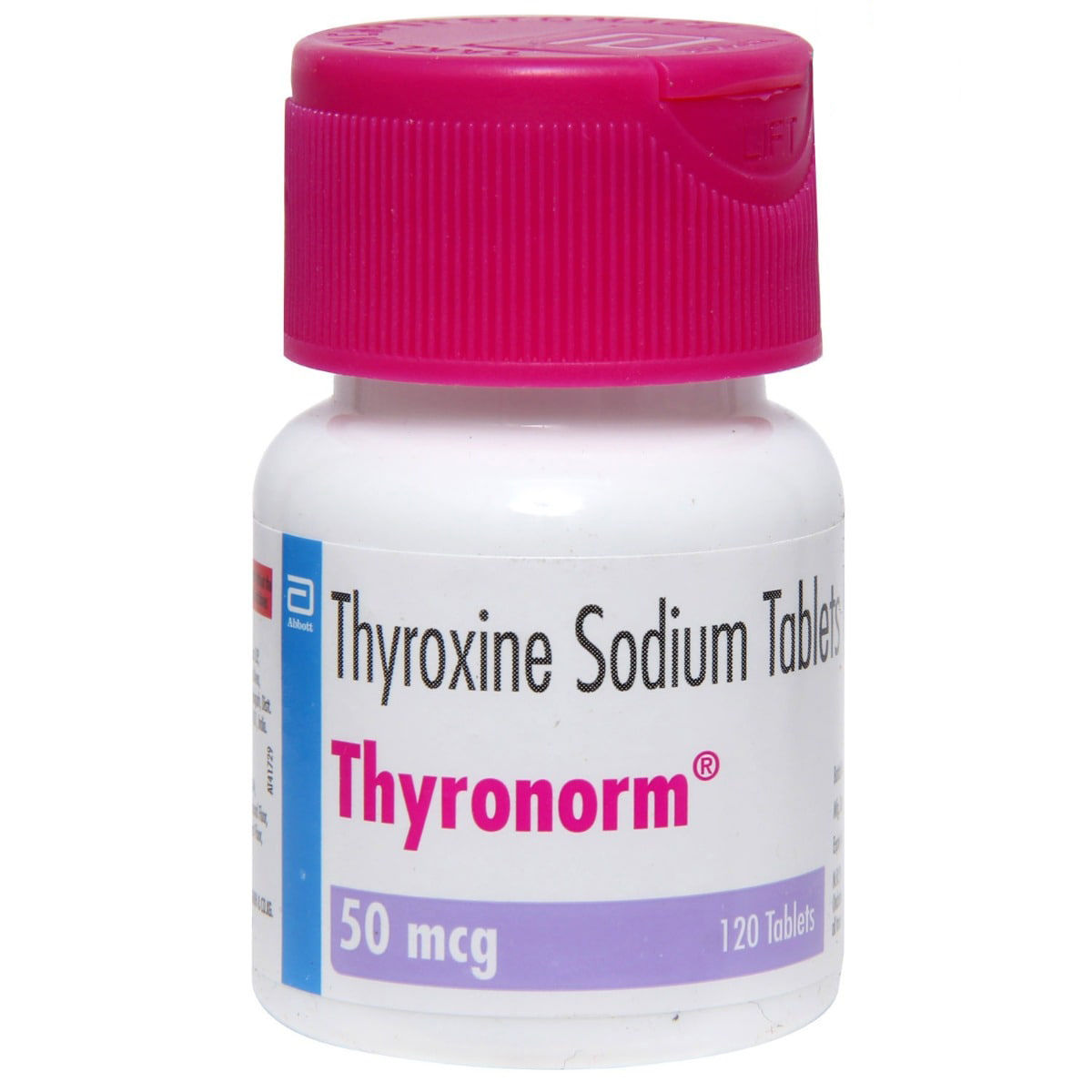 RX
RXThyronorm 50 mcg Tablet 120's
₹126.50
MRP ₹140.50
10% off
 RX
RXThyronorm 75 mcg Tablet 120's
₹176.40
MRP ₹196
10% off
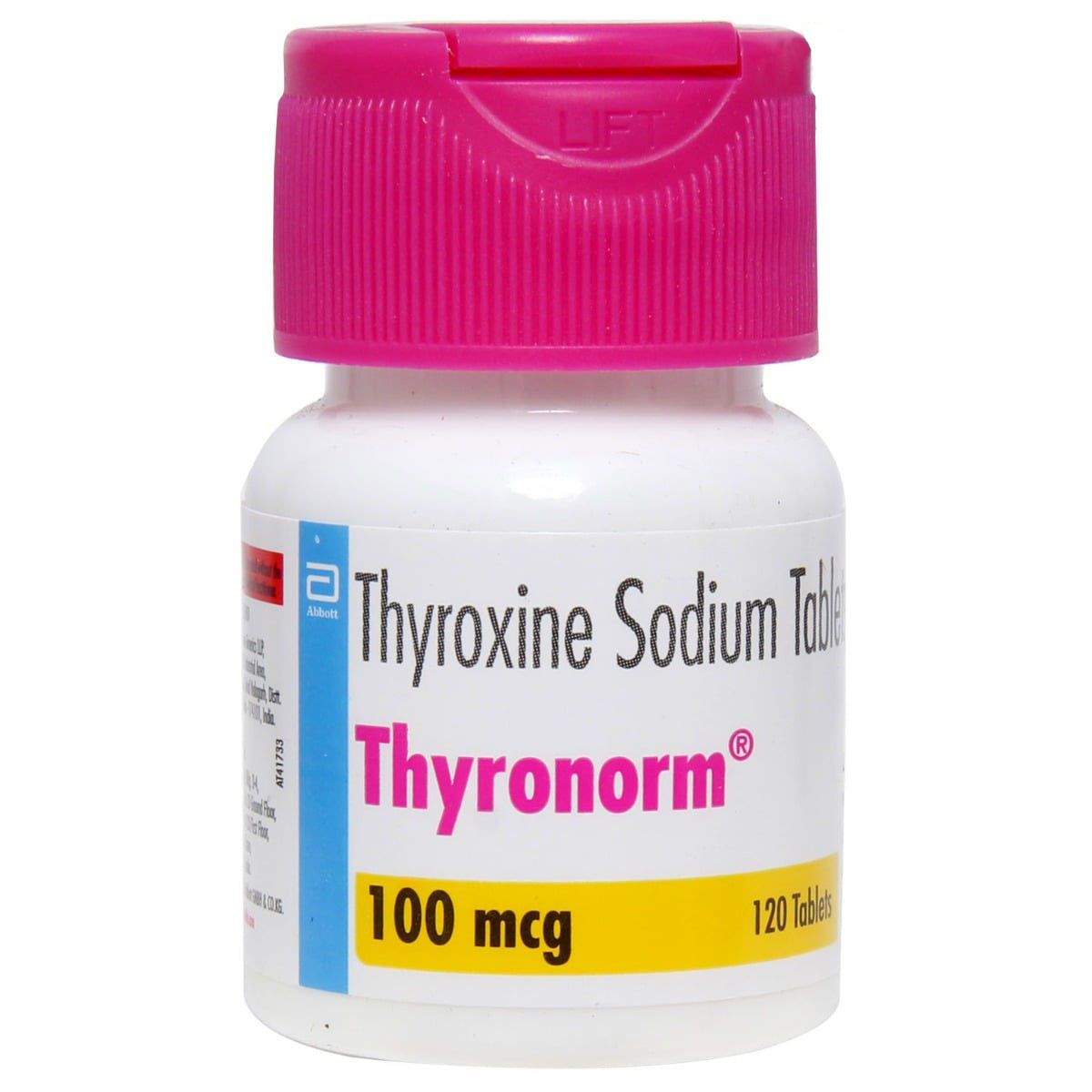 RX
RXThyronorm 100 mcg Tablet 120's
₹162
MRP ₹180
10% off
 RX
RXThyronorm 12.5 mcg Tablet 120's
₹177.80
MRP ₹202
12% off
 RX
RXThyronorm 62.5mcg Tablet 120's
₹198
MRP ₹220
10% off
 RX
RXThyronorm 125 mcg Tablet 120's
₹207.90
MRP ₹231
10% off
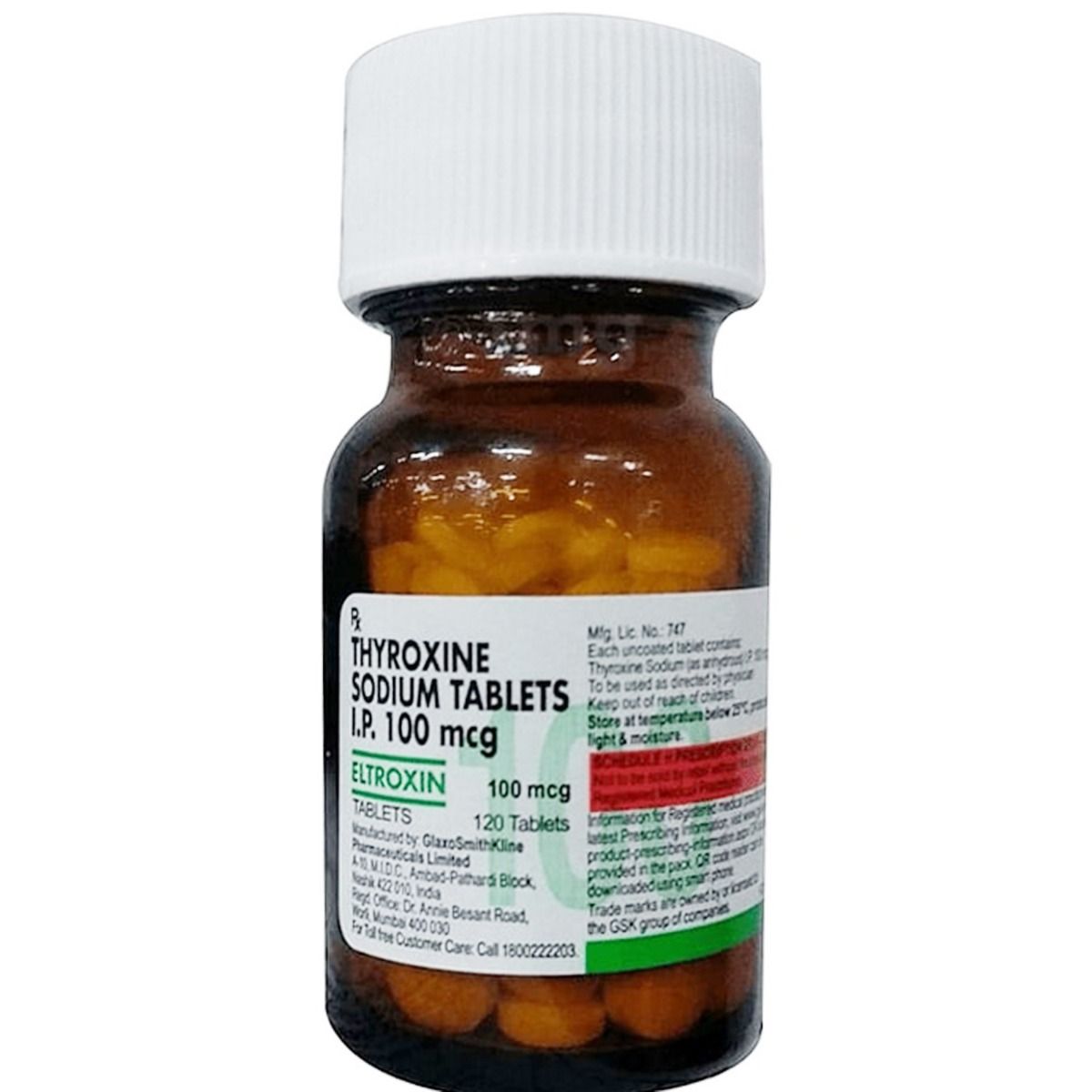 RX
RXEltroxin 100 mcg Tablet 120's
₹162
MRP ₹180
10% off
 RX
RXThyronorm 88mcg Tablet 120's
₹202.50
MRP ₹225
10% off
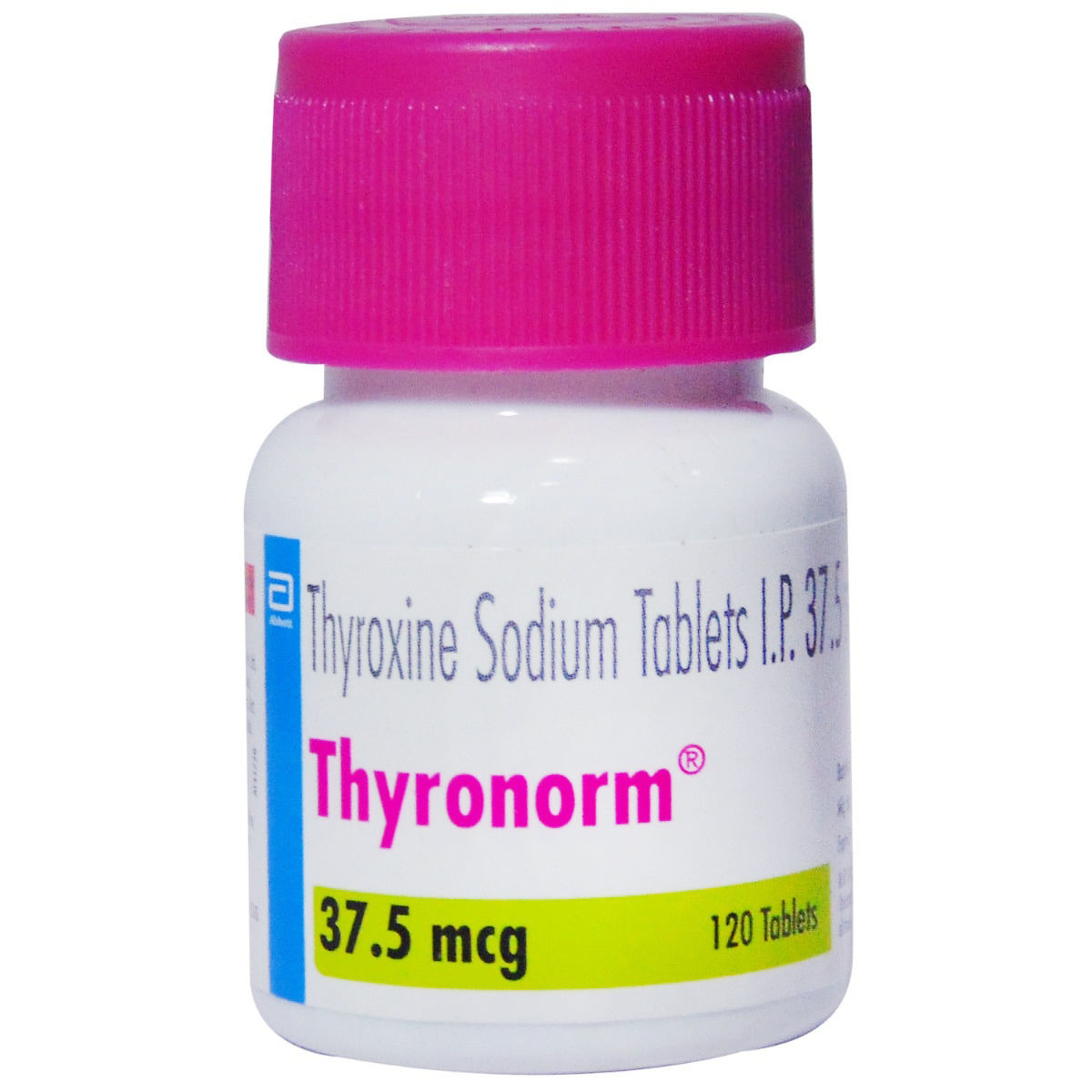 RX
RXThyronorm 37.5 mcg Tablet 120's
₹180
MRP ₹200
10% off
 RX
RXEltroxin 75mcg Tablet 120's
₹176
MRP ₹195.50
10% off
 RX
RXEltroxin 50mcg Tablet 120's
₹109.40
MRP ₹121.50
10% off
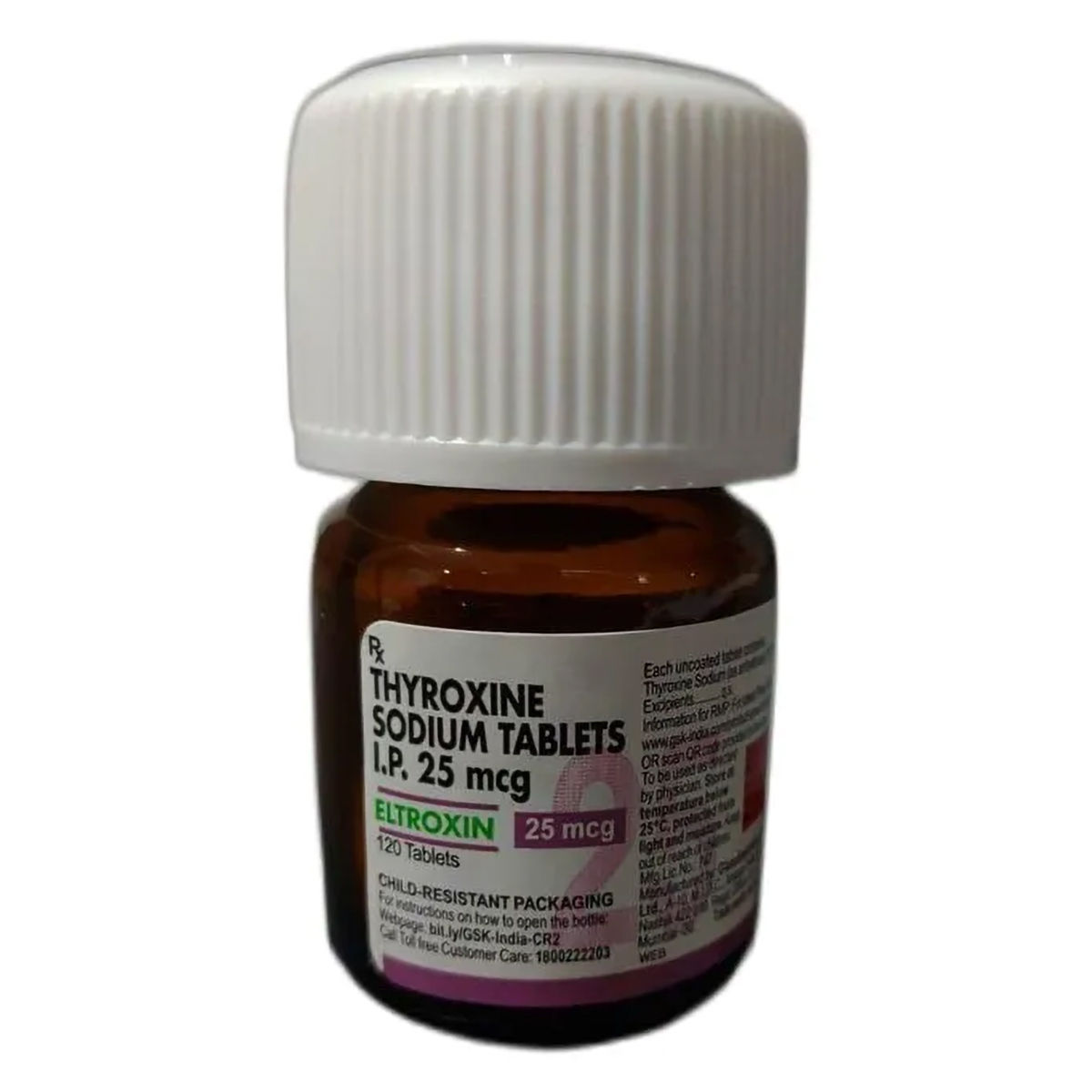 RX
RXEltroxin 25mcg Tablet 120's
₹176.90
MRP ₹196.50
10% off
 RX
RXThyronorm 150 mcg Tablet 120's
₹208.80
MRP ₹232
10% off
 RX
RXThyronorm 112 mcg Tablet 120's
₹203.90
MRP ₹226.50
10% off
 RX
RXEltroxin 125 Tablet 60's
₹102.20
MRP ₹113.50
10% off
 RX
RXThyrox 62.5 Tablet 100's
₹162
MRP ₹180
10% off
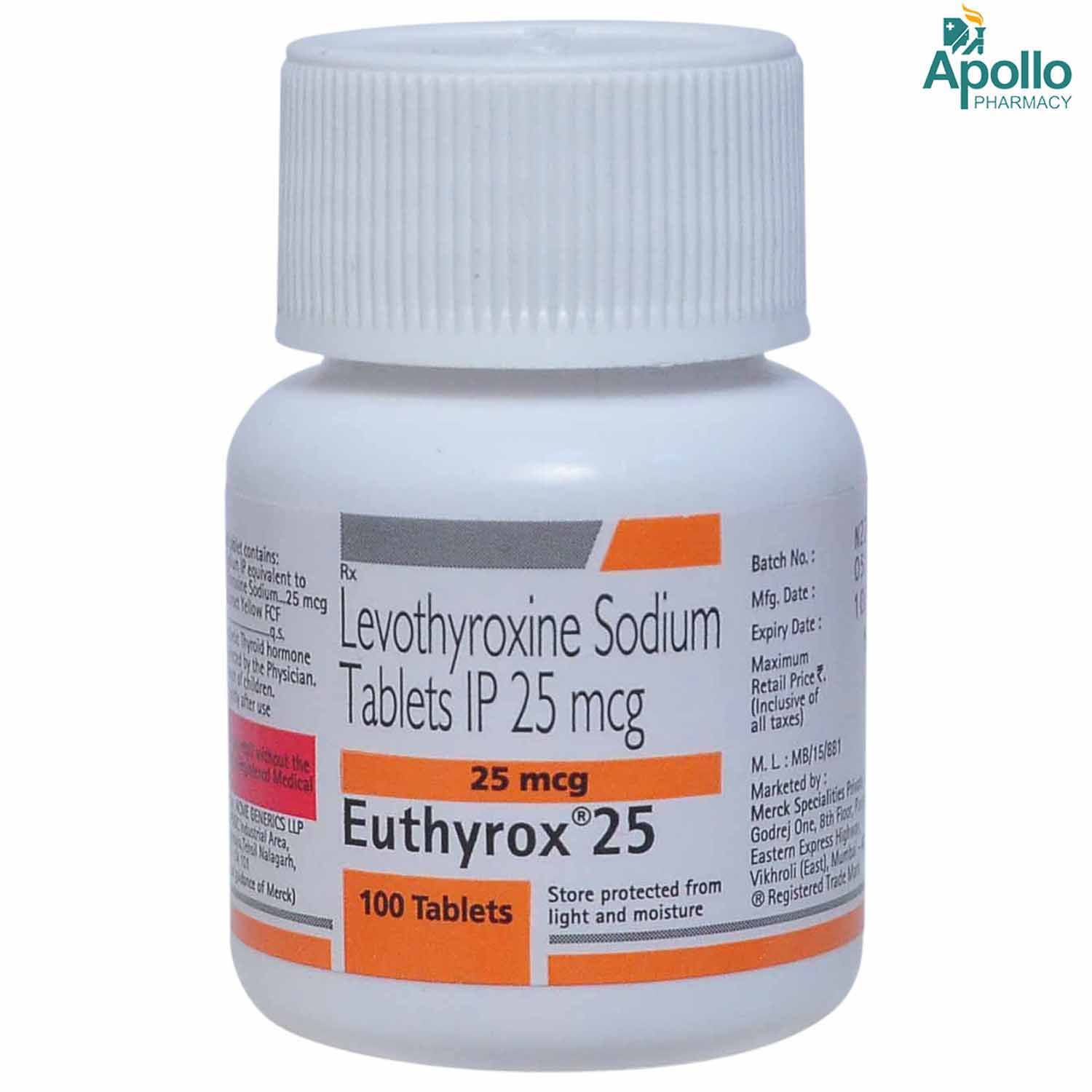 RX
RXEuthyrox 25 Tablet 100's
₹144.90
MRP ₹161
10% off
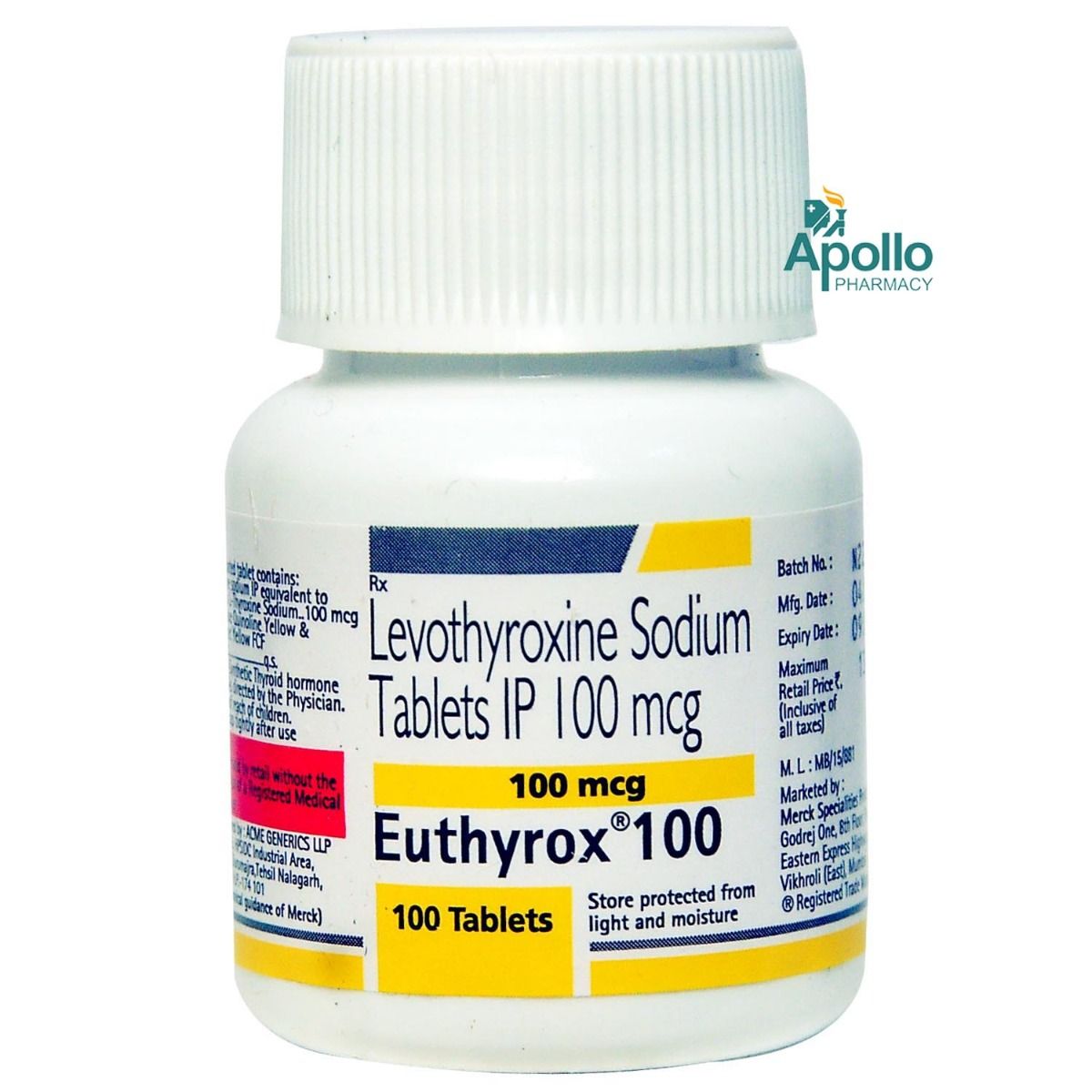 RX
RXEuthyrox 100 Tablet 100's
₹132.80
MRP ₹147.50
10% off
 RX
RXThyronorm 137 mcg Tablet 120's
₹262.40
MRP ₹291.50
10% off
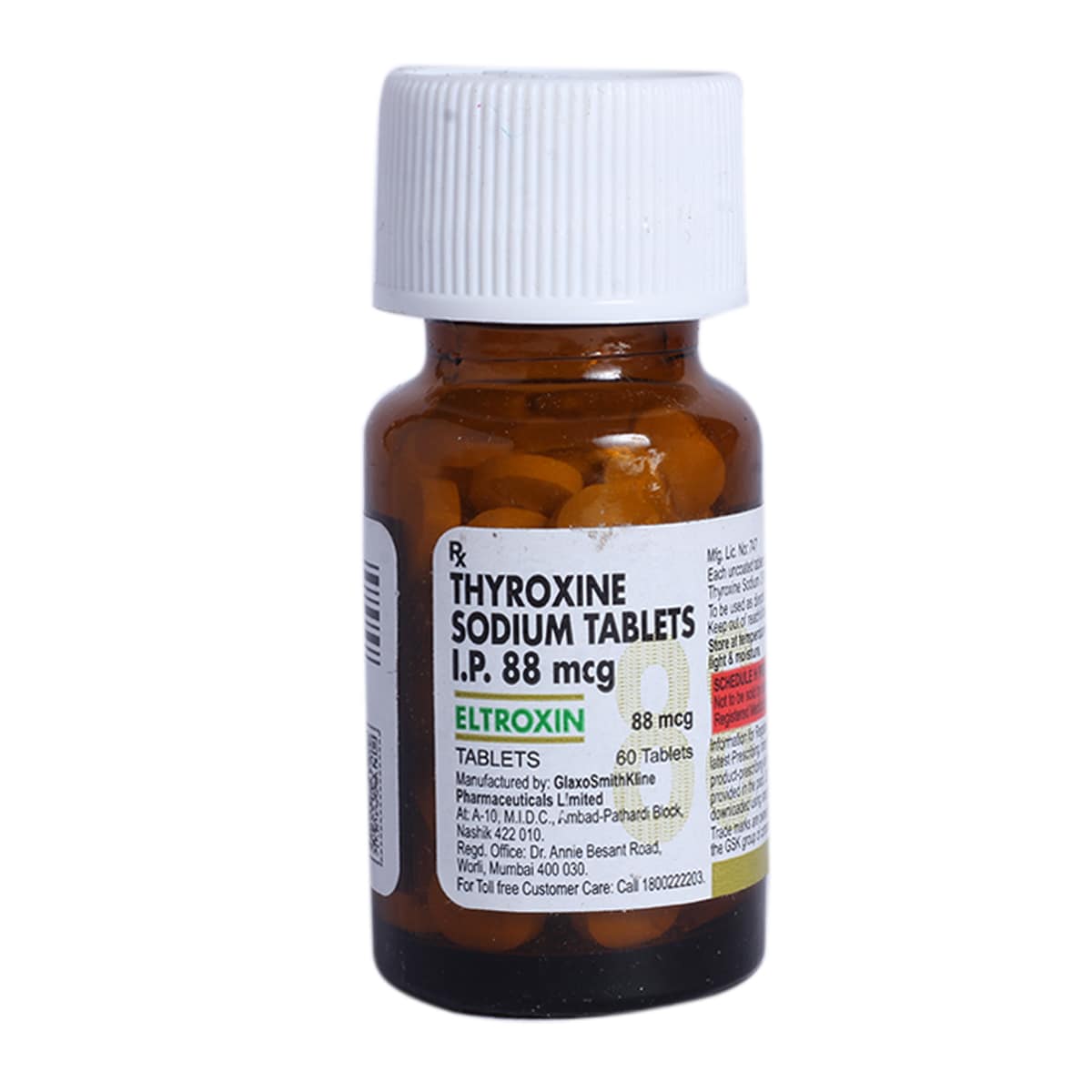 RX
RXEltroxin 88 mcg Tablet 60's
₹96.80
MRP ₹110
12% off
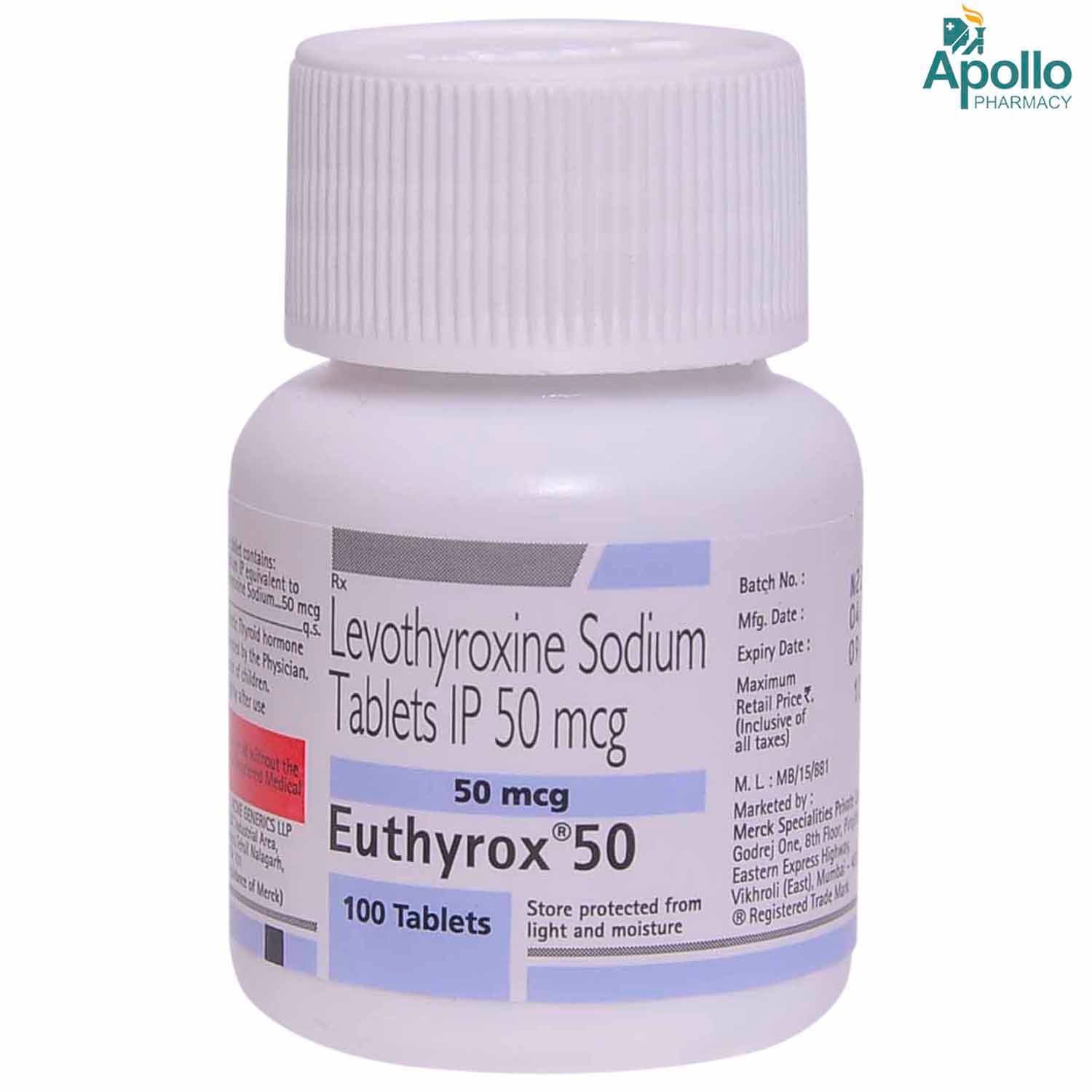 RX
RXEuthyrox 50 Tablet 100's
₹103.50
MRP ₹115
10% off
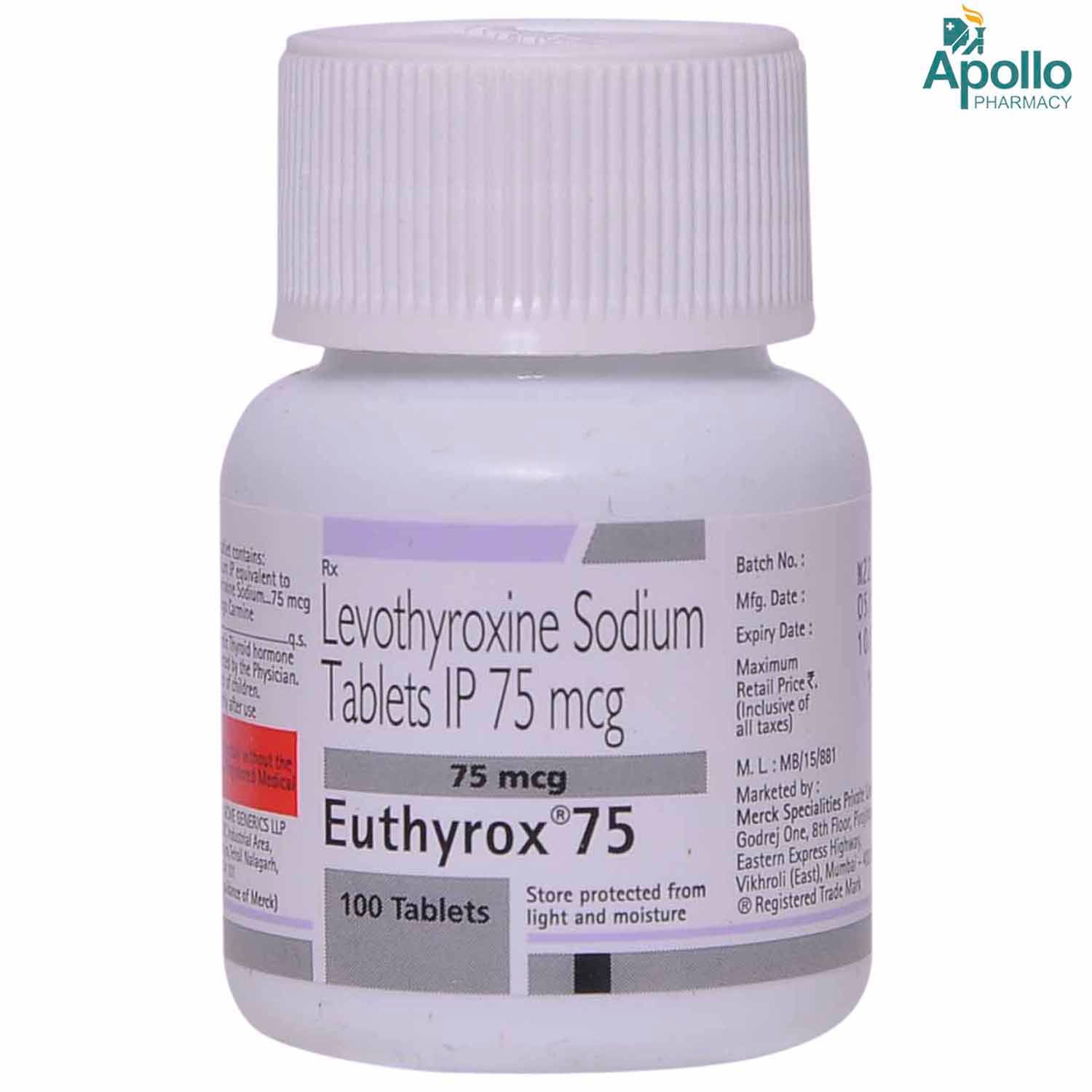 RX
RXEuthyrox 75 Tablet 100's
₹144
MRP ₹160
10% off
 RX
RXEbexid Tablet 10's
₹76.10
MRP ₹84.50
10% off
Medicine for Hypothyroidism
Hypothyroidism is when the thyroid gland does not produce enough thyroid hormones, crucial for regulating metabolism, energy production, and overall body functions. This can lead to various symptoms, including fatigue, weight gain, depression, cold intolerance, and dry skin. Managing hypothyroidism effectively requires a well-balanced treatment plan, often involving the use of medications that help restore normal thyroid hormone levels in the body.
Types of Medicine for Hypothyroidism
The primary treatment for hypothyroidism is replacing the missing thyroid hormones. These medications help regulate the body's metabolic processes, returning them to normal. Different types of medicines are used to manage hypothyroidism.
1. Levothyroxine (Synthetic Thyroxine)
Levothyroxine is the most commonly prescribed medication for hypothyroidism. It is a synthetic form of the thyroid hormone thyroxine (T4) that the thyroid gland typically produces. Levothyroxine works by increasing the levels of thyroid hormones in the blood, thereby correcting the hormone imbalance. Some brand names for levothyroxine include Euthyrox, Eltroxin, and Euthyroid.
2. Liothyronine (Synthetic Triiodothyronine)
Liothyronine is a synthetic form of triiodothyronine (T3), another thyroid hormone. It is typically used to treat T3 deficiency alone or in combination with levothyroxine. It can also be prescribed when patients do not respond well to levothyroxine alone. Liothyronine is available under brand names such as Cytomel.
3. Thyroid Extracts
Thyroid extracts are natural preparations made from pig thyroid glands. They contain T3 and T4 hormones and are considered a more "natural" alternative to synthetic options. However, they are less commonly prescribed due to difficulty in achieving a consistent dosage. Armour Thyroid is one of the more well-known brands of thyroid extract.
4. Combination Medications
In some cases, patients may require a combination of T4 and T3 therapy to achieve optimal thyroid hormone levels. Synthetic medications or natural thyroid extracts can be used for this combination therapy. Medications like Thyrolar combine T4 and T3 in a fixed ratio and can be prescribed for patients requiring both hormones for effective treatment.
5. Desiccated Thyroid Hormone (DTE)
Desiccated thyroid hormone is another natural hormone replacement derived from animal thyroid glands. It contains both T3 and T4 and is often used by patients looking for an alternative to synthetic hormone replacement therapy. Popular brands include Nature-Throid and Westhroid.
Benefits of Using Medicine for Hypothyroidism
The goal of using thyroid hormone replacement medications is to restore normal thyroid function and alleviate the symptoms associated with hypothyroidism. Here are some of the key benefits:
1. Restores Hormonal Balance: By supplementing the body with synthetic or natural thyroid hormones, these medications restore normal levels of T3 and T4 in the bloodstream, helping regulate metabolism, energy levels, and many other bodily functions.
2. Improves Symptoms: Hypothyroidism can cause debilitating symptoms like fatigue, weight gain, constipation, and depression. Patients often experience significant relief from these symptoms with the appropriate medication, resulting in improved quality of life.
3. Normalises Metabolism: Thyroid hormones are essential for controlling metabolic processes in the body.
4. Supports Mental Health: Hypothyroidism can contribute to feelings of depression, anxiety, and brain fog. Restoring thyroid hormone balance can improve cognitive function, mood, and overall mental well-being.
5. Prevents Complications: If left untreated, hypothyroidism can lead to serious complications, such as heart disease, infertility, and nerve damage. Consistent use of thyroid hormone replacement helps prevent these long-term health issues.
Dosage & Usage Instructions of Hypothyroidism Medicines
The dosage of thyroid hormone medications varies depending on the type of medication and the patient's individual needs. The goal is to adjust the dose to achieve optimal thyroid hormone levels while avoiding symptoms of over- or under-replacement.
1. Levothyroxine: Levothyroxine is usually taken orally once daily, preferably on an empty stomach, to ensure maximum absorption. The dosage is typically adjusted based on blood tests that measure thyroid-stimulating hormone (TSH) levels. The starting dose is often low and may gradually increase until optimal levels are achieved.
2. Liothyronine: Liothyronine is typically prescribed when T3 levels need to be corrected. It is usually taken once or twice daily, and the dosage is carefully adjusted based on symptoms and blood tests. Starting doses often begin at around five micrograms and gradually increase depending on the response.
3. Thyroid Extracts and Combination Medications: The dosage for natural thyroid extracts varies based on the concentration of T3 and T4. These medications are typically prescribed for patients who do not respond well to synthetic thyroid hormone alone. Dosage is personalised, and regular monitoring is essential to ensure proper thyroid function.
4. Desiccated Thyroid Hormone (DTE): DTE medications are taken daily, and the dosage is adjusted depending on how the patient responds. Regular blood tests are necessary to assess thyroid hormone levels and ensure proper treatment.
Buy Medicine for Hypothyroidism or Hypothyroidism Medicines Online at Apollo 24|7
Effective management of hypothyroidism requires consistent medication and regular monitoring. You can now conveniently buy hypothyroidism medicines online at Apollo 24|7, which ensures fast and secure delivery of trusted thyroid medications right to your doorstep. Whether you need levothyroxine, liothyronine, or any other medication for hypothyroidism, Apollo 24|7 offers a wide range of products, ensuring you receive the right treatment plan.
Frequently asked questions
Levothyroxine is generally considered the first-line treatment for hypothyroidism, as it is effective and widely available. However, the best medicine varies based on individual needs, and a doctor will determine the most suitable medication for each patient.
Most patients start to feel better within 1-2 weeks of starting thyroid hormone replacement therapy, though it can take a few months for symptoms to improve fully.
Some medications, like calcium supplements or iron, can interfere with the absorption of thyroid medications. It's important to take thyroid medications on an empty stomach and space them out from other medicines. Always consult with your doctor or pharmacist for guidance.
Some patients may experience side effects such as palpitations, headaches, or changes in appetite, especially if the dosage is too high. Regular monitoring ensures the correct dose is prescribed.
No, hypothyroidism is a lifelong condition, and stopping medication can lead to a return of symptoms. Always follow your doctor's instructions and never stop or adjust medication without consulting them.
